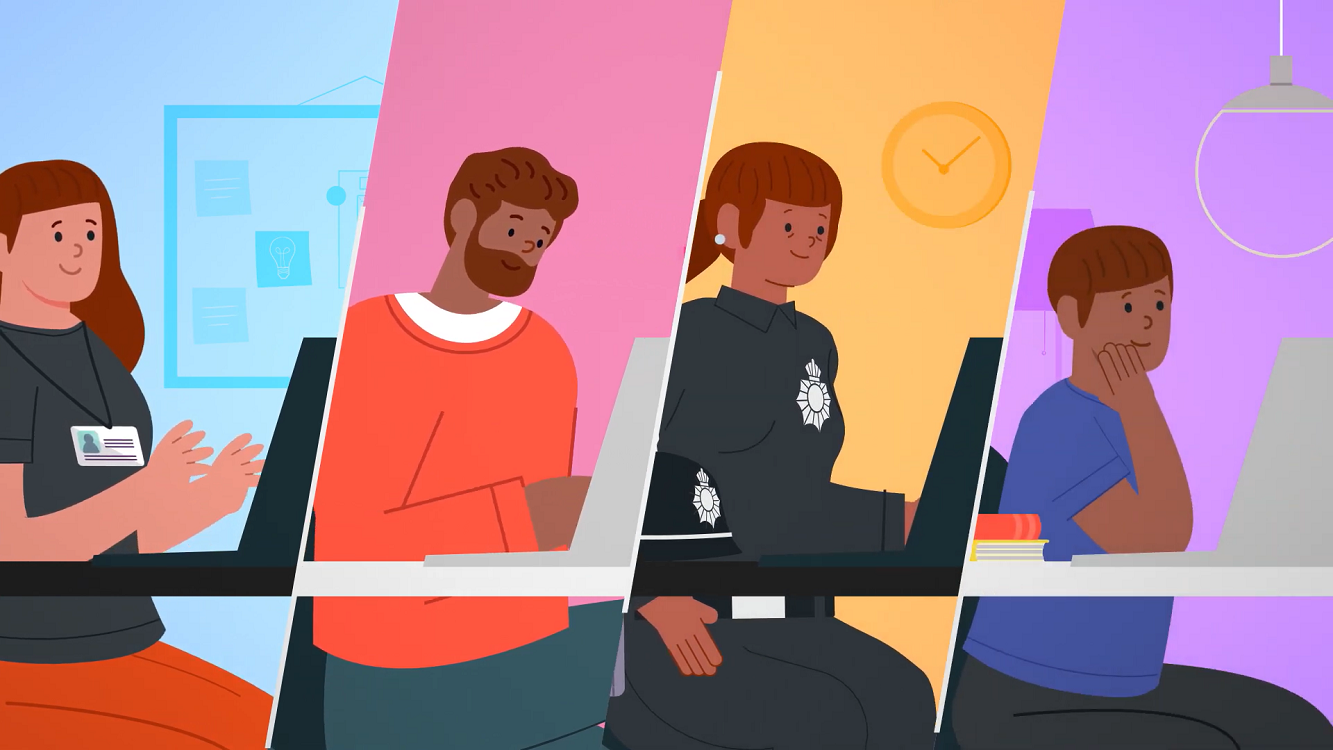By Dr Larissa Engelmann, Professor Corinne May-Chahal and Dr Christine A. Weirich, published: 06/02/2024.
Efforts to prevent online harm among children mostly take place after harm has occurred, e.g. using artificial intelligence to detect images online, or beforehand through schools and educational initiatives.
Yet online sexual abuse continues to increase. Most significantly in the aftermath of the Covid-19 pandemic, there has been a marked spike in cases of sexual communication with children, otherwise known as ‘grooming’. And child sexual abuse media online is also growing year on year, now with almost a third containing imagery of children aged 7-10.
This week, children and young people across the country will once again be engaging in lessons and activities regarding safe online behaviour for Safer Internet Day, which takes place on 6 February 2024. This presents an opportunity to reflect on how best to tackle the challenge by presenting some emerging insights from our work in the Vulnerability & Policing Futures Research Centre on online child sexual victimisation (OCSV), and to consider: How do children and young people want to engage with this topic?
Project aims and objectives
- Taking a place-based approach, to analyse how OCSV is currently understood and responded to by police, public and third sector partners, parents and children.
- Identify how the police can best work in partnership with others to respond to and prevent OCSV.
- To produce a locality-based OCSA quality standards tool that can be applied nationally with scope to develop in an international context.

Over the past year we have taken a place-based approach to gain a better understanding of the services in place within one locality, Blackpool. We have been exploring prevention efforts and responses to OCSV in this area. Similar to recent publications on this issue, such as the HMICFRS inspection & the Police Foundation, interviews and focus groups with local service providers, parents and young people highlighted that:
- Exposure to dangerous or explicit content online for young people from a young age (5/6 years) is normalised.
- There has been an increase in children coming forward about exposure to sexualised content or exploitation.
- The topic can make adults feel uncomfortable and unclear about how to respond in a supportive way, particularly when according to the law, a crime has been committed.
- Parents feel excluded in the prevention of OCSV with a lack of active outreach and support for them to better understand the problem and put safeguards in place.
- There is a need for more support for cases of OCSV committed between peers by children themselves.
What do children and young people in Blackpool think about this topic?
Hearing from children themselves about their online lives, how they keep themselves safe and what help they want and need if something goes wrong, is a vital part of this project. To be able to include children and young people’s perspectives in a safe way, we worked with Nathan Parker, a local spoken-word artist to co-develop, with young people, a video which reflected the feelings and thoughts of children and young people in local youth groups. The Boathouse Youth and the Blackpool Boys and Girls Club supported this engagement and enabled us to create this powerful video.
This video provides a valuable resource for adults and community leaders to get a better understanding of children’s use of the online world and how to support them to use it safely. Some important take-aways include:
- Apps (such as TikTok and Instagram) “need to do better, age restrictions must be enforced.”
- Having children and young people help with the content and delivery of online safety would help to make lessons more relevant for children and focused on their needs.
- Encourage communication between police and children in safe spaces to informally to learn about this topic and its repercussions.
- Fostering open and honest discussions between adults and children at home to help parents learn about why children like being online, help them spot threatening or risky behaviour early and understand why their child might not want to tell them about it.
Engaging Children and Young People
Due to rapid advancements in technology and popular apps, it is clear that not only do young people want further enforcements and protections in place, but they also want and need to be involved in the design and delivery of online safety curriculums. Thinking forward to future Safer Internet Days, communities might consider the following:
- Engaging young people in the design of the curriculum or activities.
- Creating safe spaces to discuss risky online behaviour without fear of consequences.
- Considering modelling good habits or behaviours (including online relationships), rather than only focusing on risky or dangerous behaviour.
By including children and young people in the development of online safety measures, we can create more effective and relevant measures which are inclusive and engaging for all community members.
Looking Forward
We are continuing to do work alongside communities in Blackpool and were able to organise a Visioning Day in November 2023 that brought the community together (parents, young people, police, social workers, youth groups, teachers and others) for group discussions about what a good response to OCSV entails, what the priorities of such a response in Blackpool are, and how to implement these.
Moving onto our final phase of this pilot project, we are working alongside a local action group of community members. This ongoing phase will provide us with important insights for a final community resilience quality standards tool to respond to and prevent OCSV. This tool will be relevant for practice in relation to OCSV in any locality, nationally and internationally.
To stay up to date on the progress of the project, and on other news related to the ESRC Vulnerability & Policing Futures Research Centre, please subscribe to the Centre’s newsletter.
If you have questions about the study directly, please contact the lead investigator Professor Corinne May-Chahal ([email protected]).

